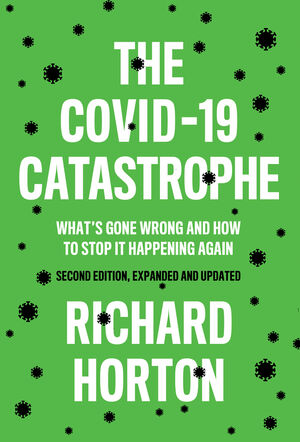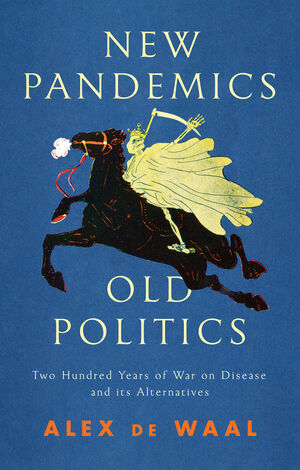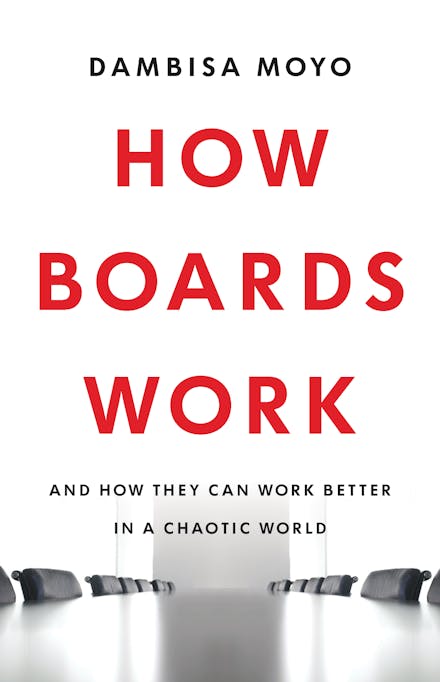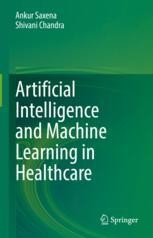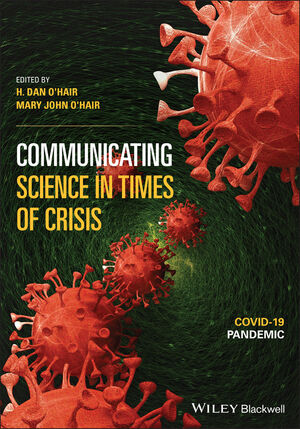HEALTH IN THE ANTHROPOCENE. Living Well on a Finite Planet
07 de juliol 2021
06 de juliol 2021
The health funding crisis (ten years after)
In a decade (2008-2018) the nominal growth of health expenditure has been 7,6%, 811m€ in absolute terms (!). If we apply de CPI to deflate such figure (14,6%), then we conclude that we have reduced our expenditure in 887m€ after 10 years (!). In 2018, we were spending 8,3% less than in 2008 in real terms (!). If we add a demographic growth of 3,3%, then the reduction in per capita terms is 11,6% (!). This is our "funding" for population health. The nominal growth in taxes during the same period has been 17,8%. Where is the money?
That's all folks, and now you can ask why Catalonia is asking for independence and why our politicians are not answering the outcry for a better funding for health.
05 de juliol 2021
My health depends on your health (at least)
The COVID-19 Catastrophe. What’s Gone Wrong and How to Stop it Happening Again
From the final chapter, by Richard Horton, The Lancet editor:
COVID-19 is not an event. Instead, it has defined the beginning of a new epoch. It took a virus to connect us in life and in death. We understand now, I think, our extraordinary interdependence and unity as a species. Yet our world is organised and ordered by separation, by partition – countries and continents, languages and faiths, political systems and ideological allegiances.
We surely have to use this occasion to resist and to challenge the past mood for estrangement and prejudice. We have to use this time for solidarity, for mutual respect and mutual concern. My health depends on your health. Your health depends on my health. We cannot escape one another. The liberties that we prize so highly depend on the health of all of us. We cannot say that the politics and priorities of my country are of no concern to you. They are, and legitimately so. Just as the politics and priorities of your country are a legitimate interest of mine. Sovereignty is dead.
The post-COVID-19 age will usher in a new era of social and political relations, one in which our liberties will be achieved through new means of cooperation and communication. One can be proud of one’s national culture and identity. But COVID-19 also shows the importance we should attach to our global human identity. We are social beings. We are political beings. COVID-19 has taught us that we are mutual beings too.
30 de juny 2021
Emancipatory public health
NEW PANDEMICS, OLD POLITICS. Two Hundred Years of War on Disease and its Alternatives
Three selected paragraphs from the last chapter (the most interesting one):
Experts in infectious diseases had been worried about the radical uncertainties of a new pathogen. It turned out that the science had so improved in the years since SARS that the uncertainties were well within the scope of the anticipated. The radical uncertainty was in the politics – something that none of the experts had thought to anticipate. SARS-CoV-2 is a politically sophisticated pathogen, whose impact lies more in what it does to the body politic than what it does to the human body. The politics of response to Covid-19 was a disorienting combination. The political right invited popular debate on public health expertise, in pursuit of its new-found agenda of disrupting institutions. In the name of free-thinking, agitators veered into pseudo-science and conspiracy theories. Liberals and the left valorized scientists and rushed to embrace a standardized set of suppression measures. Lockdowns were over-engineered and had momentous social and economic consequences; some critics detected authoritarian longings.
Could Covid-19 become what Ulrich Beck called an ‘emancipatory catastrophe’?35 If so, what would be a new, emancipatory narrative for what we do about pandemic diseases, actual and threatened? I suggest that we begin with a return to a word introduced in chapter 1, and left waiting in the wings: ‘pandemy’. As our leading scientists insist, pandemic disease is too important to be left to the biomedical establishment. It’s a crisis in our way of life. In using the word ‘pandemy’, we can reclaim the concept of a holistic disruption, reaching backwards into the ecological, social, and health pathologies that have created virulent pathogens with pandemic potential, broadening to include other illnesses prevalent at the same time, and reaching forward into wider societal and political repercussions. In short, we can integrate the ‘One Health’ approach to where these diseases come from with the ‘people’s science’ practice of responding to them.
Emancipatory public health begins with a conversation on this whole-of-society, whole-planet, ‘One Health’, democratic, and participatory agenda. The starting point is not the content of the policies but the process for getting to them. Those who are most vulnerable and most excluded will have some of the most important things to say. This means dismantling the ‘war on disease’ mindset and its politics, assembled over the last two centuries. If we do this, Covid-19 may yet be the emancipatory catastrophe we need.
18 de juny 2021
17 de juny 2021
Opioid prescription in Catalonia
Sistema d'Informació sobre Drogodependències de Catalunya
You'll find these information in p.152 of the report:
In Catalonia, Fentanyl consumption has risen 24% in 5 years, in daily dose per inhabitant, while Tapentadol has jumped 300%!!!
Somebody should understand why it is this so and take some action.
16 de juny 2021
15 de juny 2021
14 de juny 2021
11 de juny 2021
04 de juny 2021
Patients and AI
Artificial intelligence, bias, and patients’ perspectives
By Topol et al. in Lancet
By training algorithms to predict labels related to clinical outcomes, rather than doctors’ judgments, we can start to push forward a new kind of clinical science. For example, by grounding patient reports of pain in objective radiographic features, we might develop a more comprehensive understanding of what causes pain. By not being doctor-centric and incorporating the patient’s perspective, machine learning has added potential for unravelling important mysteries of medicine.
03 de juny 2021
Preventing alcohol abuse
Harmful alcohol consumption damages health, causes diseases and injuries, weakens response to COVID-19,and leads to significant economic and societal costs. Comprehensive policy packages built on a PPPP approach including Pricing policies, Policing to counter drink-driving, Primary care-based counselling for heavy drinkers, and regulating alcohol Promotion activities, improve health, and support a stronger economic and social recovery in the aftermath of thepandemic.
01 de juny 2021
AI in healthcare
Artificial Intelligence and Machine Learning in Healthcare
A useful guide about the current situation of AI in healthcare,
31 de maig 2021
Communication in pandemic times
Communicating Science in Times of Crisis. The COVID-19 Pandemic
TABLE OF CONTENTS
Part 1 Conceptualizing Communication Science and COVID-19 1
1. Managing Science Communication in a Pandemic 3
H. Dan O’Hair and Mary John O’Hair
2. Comprehending Covidiocy Communication: Dismisinformation, Conspiracy Theory, and Fake News 15
Brian H. Spitzberg
3. How Existential Anxiety Shapes Communication in Coping with the Coronavirus Pandemic: A Terror Management Theory Perspective 54
Claude H. Miller and Haijing Ma
Part 2 Promoting Health and Well-being 81
4. Communication and COVID-19: Challenges in Evidence-based Healthcare Design 83
Kevin Real, Kirk Hamilton, Terri Zborowsky, and Debbie Gregory
5. Identity and Information Overload: Examining the Impact of Health Messaging in Times of Crisis 110
Jessica Wendorf Muhamad and Patrick Merle
6. Social Media, Risk Perceptions Related to COVID-19, and Health Outcomes 128
Kevn B. Wright
7. Overcoming Obstacles to Collective Action by Communicating Compassion in Science 150
Erin B. Hester, Bobi Ivanov, and Kimberly A. Parker
8. Communicating the Science of COVID-19 to Children: Meet the Helpers 172
Jennifer Cook, Timothy L. Sellnow, Deanna D. Sellnow, Adam J. Parrish, and Rodrigo Soares
9. The Use of Telehealth in Behavioral Health and Educational Contexts During COVID-19 and Beyond 189
Alyssa Clements-Hickman, Jade Hollan, Christine Drew, Vanessa Hinton, and Robert J. Reese
Part 3 Advancing Models of Information and Media 215
10. Toward a New Model of Public Relations Crisis and Risk Communication Following Pandemics 217
Zifei Fay Chen, Zongchao Cathy Li, Yi Grace Ji, Don W. Stacks, and Bora Yook
11. Perspective Change in a Time of Crisis: The Emotion and Critical Reflection Model 242
Helen Lillie, Manusheela Pokharel, Mark J. Bergstrom, and Jakob D. Jensen
12. Social Media Surveillance and (Dis)Misinformation in the COVID-19 Pandemic 262
Brian H. Spitzberg, Ming-Hsiang Tsou, and Mark Gawron
13. Science Communication and Inoculation: Mitigating the Effects of the Coronavirus Outbreak 302
Bobi Ivanov and Kimberly A. Parker
Part 4 Examining Policy and Leadership 321
14. Communicating with Policymakers in a Pandemic 323
Michael T. Childress and Michael W. Clark
15. Equally Unpleasant Choices: Observations on School Leadership in a Time of Crisis 338
Justin M. Bathon and Lu S. Young
16. Controlling the Narrative: Mixed Messages and Presidential Credibility 358
Robert S. Littlefield
17. Communicating Death and Dying in the COVID-19 Pandemic 375
William Nowling and Matthew W. Seeger

